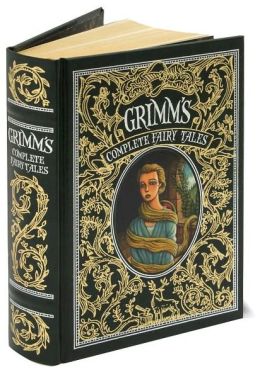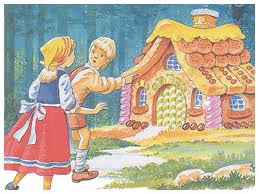First things first: their names. Jakob Ludwig Karl Grimm and Wilhelm Grimm. (I've already learned something! I never knew their names before.)
 |
| Guess who these guys are! |
Jakob was older, with a birthday of January 4, 1785, and Wilhelm was born February 24, 1786. They had four other siblings as well (who I'm pretty sure, no one has ever heard of.)
Jakob developed an interest in medieval poetry and became private librarian to King Jerome of Westphalia, giving him a large salary and lots of free time. After Napoleon fell, the true ruler of Hesse returned, and did not want a librarian. Jakob took a low-paying job as public librarian in Kassel (where Wilhelm was secretary).
Jakob's scholarly work started with a focus on grammar (because that's what all the cool kids study). His goal was to write not a manual of correct usage of German, but a natural history of the German language. The first volume was published in 1812, but the really good stuff was in volume two, published in 1822. His discoveries about the theory of sounds were incredibly exciting to the kinds of people who get excited about discoveries relating to the theory of sounds.
 |
| Umlauts: More exciting than you ever thought possible. |
There was a third volume published in 1831 that continued the work of the second (building the German language from its basic root words) and the fourth volume was never finished, but it concerned syntax.
The brothers moved to Gottingen in 1830 and began teaching in addition to their other scholarly work. Jakob published Deutsche Mythologie in 1835, which was his attempt at collecting the pre-Christian German religious beliefs using poetry, fairy tales, and other folklore. As we will mention a lot this week, the written fairy tales that we have now aren't original. They came from hundreds of years of oral story telling.
 |
| Guess what that became? |
They worked together on a series called the Deutsches Worterbuch starting in 1854, which was another linguistic work. It was also not supposed to be a usage manual, but more of an attempt at slowing or indeed stopping the deterioration of the language.
So you may be wondering: If the majority of their work was nested comfortably in the realm of linguistics, why are they best known for their fairy tales?
Well, that Deutsche Mythologie was a biggish deal. Philologists of the time looked down their nose at things like that. Fairy tales were firmly rooted in the realm of children, and were not "worth" studying in any serious scholastic pursuit. The Grimm brothers cast aside that prejudice and studied them anyway, implicitly arguing that they held important information that was necessary to document and consider in any valid conversation about a culture.
 |
| Says more about German culture than schnitzel and beer |
They thought that collecting these stories in written form was important to keeping them alive and passing them on (in addition to learning from them in an anthropological type of way) and they were undoubtedly correct. The Grimm brothers' versions of these tales have become canon; they define the fairy tales.
I'm excited about this week of posts. I have a big book of Grimm's Fairy Tales and, while I haven't read all of them, I've really liked the ones I've read. I agree with the brother that you can tell a lot about a culture by its fairy tales.
ReplyDelete